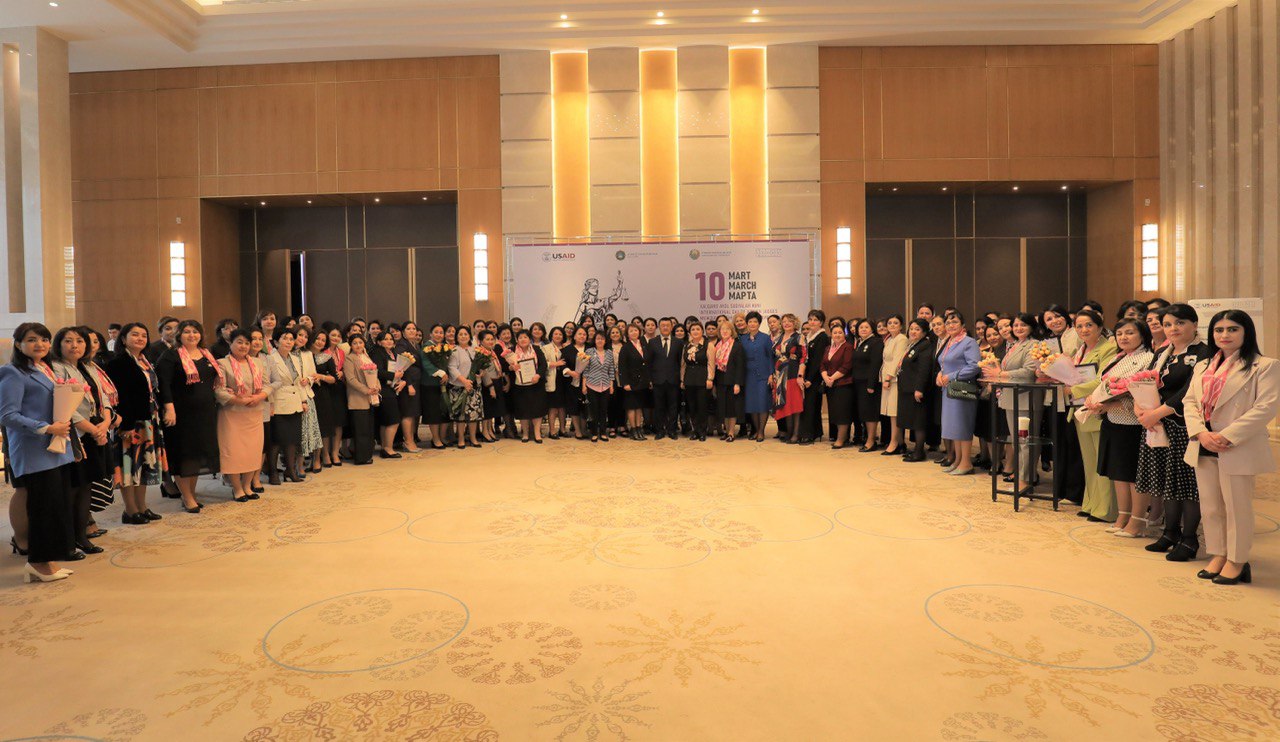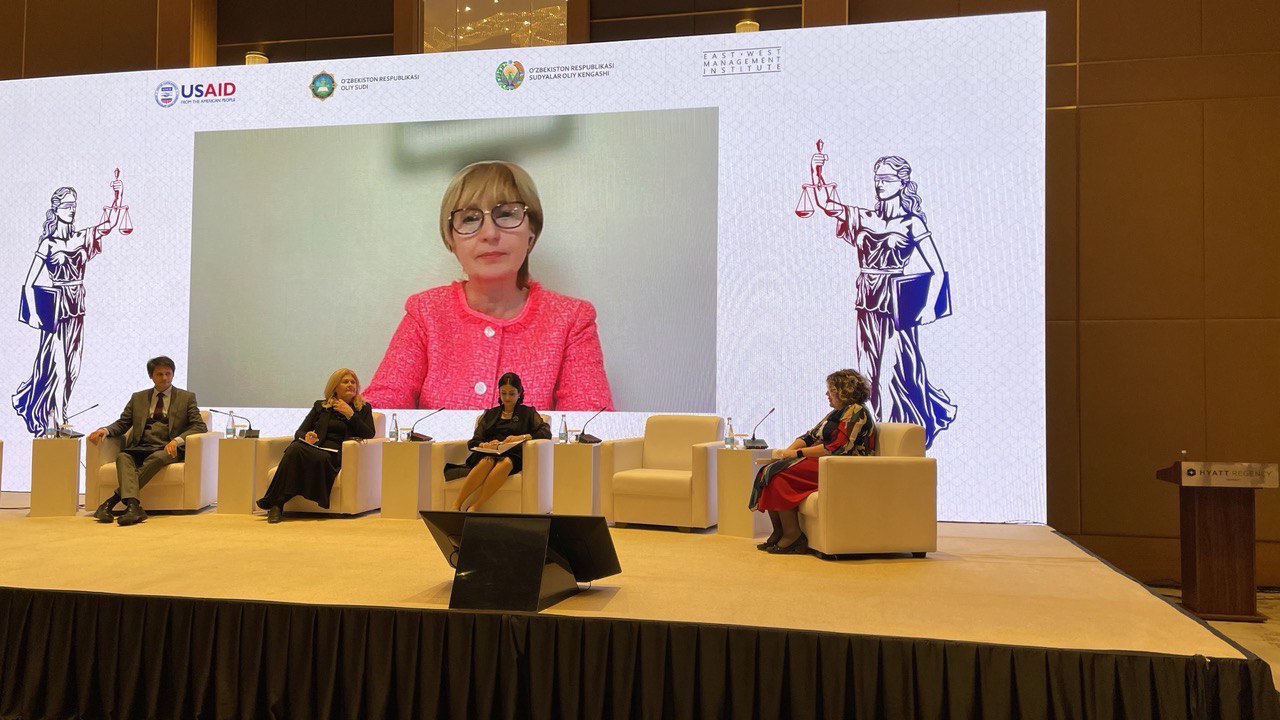The advent of women judges in the courts is a positive step towards making the judiciary more transparent, inclusive, and representative of the people they affect. This was stated at an international conference in Uzbekistan’s capital Tashkent on March 11.

'USAID’s cooperation with the Supreme Court and the Supreme Judicial Council of Uzbekistan has led to significant progress in promoting gender equality in the Uzbekistan judiciary. USAID helped develop the E-Sud electronic court system that provided access to women, even in the most remote areas of Uzbekistan, to defend their rights in court. It is my pleasure to remind the participants that Chairperson Yodgorov was the national coordinator. Your input into the E-SUD system, Chairperson Yodgorov, contributed to greater access for women to justice', USAID/DGO Director Faye Haselkorn.

'We are proud to support gender training for judges from all regions of Uzbekistan and equally proud to be a part of the gender reforms in the judiciary. Last year, in partnership with the Higher School of Judges, 150 judges and gender focal points, from all parts of the country, participated in gender trainings', she added.
The event was chaired by the Supreme Court and the Supreme Judicial Council with the joint Support of the US Agency for International Development and East-West Management Institute.
Commemorating the International Day of Women Judges, the forum awarded 30 female judges with certificates of honor from the Supreme Court. Reportedly, women judges from Kazakhstan, Kyrgyzstan, Tajikistan, Moldova, and Serbia also received gifts.
Particular attention was drawn to ways to boost the participation of women judges in judicial and legal reform processes.
Reportedly, 182 women judges are currently working in Uzbekistan.
Comments (0)